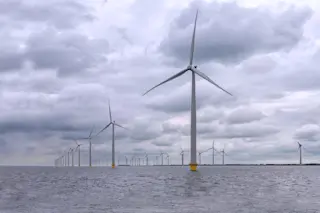It's prompting the Pentagon to become less fossil fuel dependent and will likely hasten the scale up of renewable energy technologies. From Elisabeth Rosenthal's must-read front page story in today's NYT:
Even as Congress has struggled unsuccessfully to pass an energy bill and many states have put renewable energy on hold because of the recession, the military this year has pushed rapidly forward. After a decade of waging wars in remote corners of the globe where fuel is not readily available, senior commanders have come to see overdependence on fossil fuel as a big liability, and renewable technologies "” which have become more reliable and less expensive over the past few years "” as providing a potential answer. These new types of renewable energy now account for only a small percentage of the power used by the armed forces, but military leaders plan to rapidly expand their use over the ...













